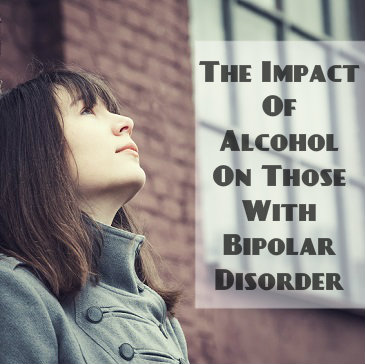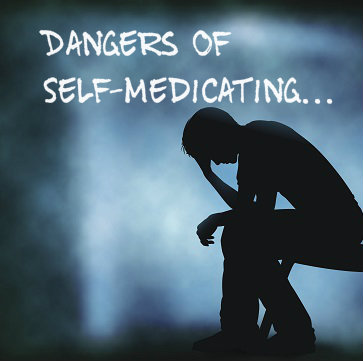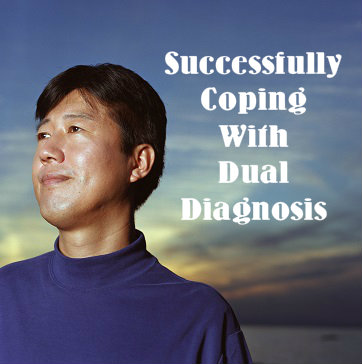29 Jan 2015
Healing From Depression In Recovery
Depression and addiction as co-existing disorders isn’t uncommon. If you’ve gone through rehab and addiction treatment and are now successfully in recovery, you’ve done some very difficult work to get better.
What if you now feel depressed? If you do, you’re far from alone. Nearly 9 million people struggle with both addiction and a mental illness. Any mental illness can co-occur with addiction, but depression is common.
Learning To Heal From Depression In Recovery
If you did your hard work in rehab and are now struggling with depression, you’re at greater risk of relapsing. Learn to heal from your depression so you don’t return to substance abuse and so you can live an enjoyable life.
Getting Diagnosis And Treatment
 The most important thing you can do now is to see a professional for a diagnosis. A mental health professional can tell you if you have clinical depression or if you are battling a normal and expected bout of depression after drug or alcohol addiction. Either way, getting treatment will help. Treatment for depression usually involves psychotherapy, cognitive behavioral therapy, group therapy, medication or some combination of these methods.
The most important thing you can do now is to see a professional for a diagnosis. A mental health professional can tell you if you have clinical depression or if you are battling a normal and expected bout of depression after drug or alcohol addiction. Either way, getting treatment will help. Treatment for depression usually involves psychotherapy, cognitive behavioral therapy, group therapy, medication or some combination of these methods.
Therapy can help you learn to recognize signs of depression and negative thoughts while also learning how to change them. Medication is a type of treatment that works for many people struggling with depression. However, as an addict in recovery you may not be comfortable taking a medication. That is a personal choice and one you should make with the advice of your doctor and therapist.
Positive Lifestyle Changes
While professional help is important in guiding you through post-rehab depression, you can also make positive changes that will improve your mood. None of these should be considered a substitution for professional care, but they can be used to supplement your treatment:
- Exercise – One important thing to do is to start exercising and eating well. Being in good physical condition will go a long way toward improving your mood. Furthermore, exercise is known to lift the mood immediately. If you feel like you can barely get out of bed in the mornings, the idea of exercise may be daunting. Start small with a short walk each day and see how it makes you feel.
- Be social – Another important way to battle depression is to be social. Spend quality time with people you enjoy. You don’t have to have a lot of friends or go to parties to be social and to benefit from socializing. Having a cup of coffee with a good friend or dinner with your family are great ways to feel better about your life. Social support is crucial to both sobriety and mood.
- Make life meaningful – Develop meaningful activities in your life. For people in recovery, sobriety often feels like a big gaping hole. You spent so much time and energy using, you may now feel lost. Fill up that hole with activities that are healthful and meaningful. Work at a job you enjoy. Do volunteer work. Take up a creative hobby like painting or writing. Adopt a dog or cat from a shelter and learn to take care of it. All of these things are meaningful and special and will make your life feel worthwhile.
Caring And Effective Depression Treatment Is Available
Depression is a serious mental illness, and it can take over your life if you do not challenge it. As an addict in recovery, you face additional challenges. If you just can’t shake your feelings of depression no matter what lifestyle changes you make, be sure to seek professional help. Depression is treatable and you don’t have to suffer.
Call Us Now For Mental Health Or Addiction Help – We Are Here For You Because You’re Worth It!…Always!
Individuals with a mental disorder often have a co-existing condition, such as depression, anxiety, or often, a substance use disorder. Alcohol or drugs are frequently used to medicate the symptoms of a mental disorder. But the presence of a substance use disorder can make treatment more complicated and can delay the reduction in symptoms.
Altered Mismatch Negativity
 In an article appearing in Clinical Psychiatry News, researchers in Australia examined the impact of risky alcohol consumption among those with bipolar disorder, as compared with nondrinkers. The study found that there was a phenomenon known as “altered mismatch negativity” on electroencephalography (EEG) exams among those with risky drinking histories.
In an article appearing in Clinical Psychiatry News, researchers in Australia examined the impact of risky alcohol consumption among those with bipolar disorder, as compared with nondrinkers. The study found that there was a phenomenon known as “altered mismatch negativity” on electroencephalography (EEG) exams among those with risky drinking histories.
According to the article, mismatch negativity is the brain’s automatic electrical activity that responds to auditory stimulation when there is a change in sounds. When there is a reduction in mismatch negativity, it indicates an impairment of NMDA-receptor activation. The NMDA receptors were already thought to be impacted by both alcohol use and in patients with bipolar disorder.
To measure the mismatch negativity in individuals with risky alcohol use and bipolar disorder, the researchers recruited 42 bipolar disorder patients and 34 control subjects. The participants were between the ages of 16 and 30. The participants were subjected to EEG exams with auditory stimuli.
Among the participants, 16 bipolar patients engaged in risky alcohol-related behaviors, as well as 14 of the control subjects. Of the remaining patients, 26 of the bipolar subjects and 20 of the control subjects did not engage in risky drinking.
Misuse Of Alcohol In Those Who Are Bipolar
The researchers found that the misuse of alcohol was a strong predictor of attenuations in mismatch negativity. The effect was significantly more profound among those diagnosed with bipolar disorder. The researchers believe that the alcohol may play an antagonistic role on the NMDA/glutamatergic system. This is consistent with the growing use of glutamatergic agents to treat bipolar disorder. Limiting alcohol consumption may be an important step when beginning treatment with glutamatergic agents.
The article notes recent studies showing that bipolar males between the ages of 20 and 30 have the highest weekly substance use. In more general terms, those who are diagnosed with bipolar disorder before adulthood have lifetime alcohol use rates of up to 70 percent.
The researchers note multiple potential limitations on their findings. For instance, the youths included in the study are not able to legally buy alcohol in Australia, so the underage drinkers may have had incentive to understate drinking behavior.
The study adds to the body of evidence that shows that bipolar disorder patients are particularly susceptible to the dangers of risky alcohol consumption.
Discover Why Integrating Medical And Mental Health Treatment Is Crucial
29 Aug 2014
Is My Child Addicted To Gaming?
Kids today have unprecedented access to technology and devices, which can be both positive and negative. Having access to the Internet and using tablets and smartphones can provide a wealth of educational opportunities. The dark side to all this access is the potential for obsessive behaviors. Video games and Internet gaming tend to lead to addictive-like behavior, and it can start early. If you’re wondering if your child spends too much time playing games, learn more about the potential for addiction and how to curb it.
Are Video Games Addictive?
 Experts in the field of addiction have debated the existence of so-called behavioral addictions for years and how they compare to chemical addictions. The latter refers to a “true” addiction to a mind-altering substance like alcohol or illegal drugs. A behavioral addiction is considered to occur when someone exhibits addictive behaviors with respect to anything other than drugs or alcohol. Some of the more common behavioral addictions include gambling, sex or pornography, shopping and eating. Behavioral addictions can cause similar symptoms to chemical addictions, such as withdrawal, lack of control and impulsiveness.
Experts in the field of addiction have debated the existence of so-called behavioral addictions for years and how they compare to chemical addictions. The latter refers to a “true” addiction to a mind-altering substance like alcohol or illegal drugs. A behavioral addiction is considered to occur when someone exhibits addictive behaviors with respect to anything other than drugs or alcohol. Some of the more common behavioral addictions include gambling, sex or pornography, shopping and eating. Behavioral addictions can cause similar symptoms to chemical addictions, such as withdrawal, lack of control and impulsiveness.
Internet and technology-related behavioral addictions are naturally on the rise as more people have access to the devices that enable the problem. Gaming can become a behavioral addiction, although some experts might refer to it as something different, such as Internet gaming disorder or an impulse control disorder. In fact, one study has reported that as many as one in ten children show signs of addiction when it comes to playing video games.
What Are The Signs Of A Video Game Addiction?
So how can you tell if your child is at risk or already showing signs of addictive behaviors? The main criterion is that the gaming is interfering with a child’s life. This could mean that your child’s gaming is causing his grades to deteriorate because he no longer has time to study. It could be that he spends so much time playing games that he doesn’t interact socially with his peers outside of school. It could also mean that he has damaged relationships with family members because of his habit. Other signs of addictive behavior include a preoccupation with gaming, thinking about it constantly, playing whenever possible, and feeling restless or irritable when not playing.
My Kid May Be Addicted To Gaming, Now What?
If you see signs in your child that he may be addicted to gaming, try to cut back the amount of time he spends playing. Cutting him off entirely doesn’t make sense, but you should be able to limit his time by setting certain gaming hours. It is also important that you model responsible technology use because actions speak louder than words. Insist that everyone in the family turn off devices at specific times of day, such as over dinner or when studying. Seeing everyone cut back on technology will help your child to be able to do the same.
When you try to cut back and find that your child just can’t do it, or that his responses to the limitations are irrational and severe, you may need some professional help. The addiction itself may not be the root of the problem either. Some experts have found that, as with drug and alcohol addiction, compulsive gaming often masks underlying mental health issues like depression or anxiety disorders. If you are concerned about your child’s use of video games and his overall mental health, see your pediatrician for referrals. You may have to get an evaluation and a diagnosis from an addiction specialist to truly get your child the help he needs.
04 Aug 2014
How To Cope With A Dual Diagnosis
Addiction and mental illness often go together. If you are addicted to drugs or alcohol, the effects of those substances in your brain can bring on symptoms of depression, anxiety or other mental health disorders. Conversely, if you have a mental illness you may medicate yourself using drugs or alcohol. If you have received a dual diagnosis and are struggling with both mental illness and addiction, there is hope and there is help.
 You Are Not Alone
You Are Not Alone
It may come as a surprise to you when you find out you have been struggling with a mental illness. Getting that diagnosis is never easy to face, but know that you are far from alone. Nearly half of all people with a severe mental illness also have substance abuse issues. Furthermore, half of people who abuse drugs and a third of people who abuse alcohol also struggle with mental illness. Anxiety disorders and depression are the most common mental illnesses that co-occur with addiction. Bipolar disorder and schizophrenia are also seen together with addiction.
Learn About Your Illnesses
When you get that diagnosis for depression, anxiety disorder or any other mental health issue and you also realize you have a problem with drugs or alcohol, it may feel like a light bulb went off in your head. Certain behaviors and feelings may begin to make more sense. To truly understand what is going on in your brain and to empower yourself to act, learn more about both mental health and addiction. The more you know the less mysterious and sinister it will seem. In educating yourself you will also begin to learn about treatment options.
Get Treatment For Addiction And Mental Illness
Getting treatment is important when you have a dual diagnosis. Either you have been self-medicating to treat your mental health symptoms or your symptoms have worsened because of your substance abuse. In either case, you are stuck in a harmful pattern of behaviors. Experts agree that you should treat both issues to get well. One may take precedence over the other, though. For instance, if your substance abuse is wreaking havoc on your physical health and running your life you may need to address your addiction first.
Start with your primary care doctor if you aren’t sure where to go to get help. Your doctor can recommend psychologists or therapists who can get you on the right treatment path for you. You may need to spend some time in a rehab facility. If you do, make sure you look for a program that is experienced in treating people with a dual diagnosis. You don’t want to ignore either one of your issues while treating the other.
Look For Support
Above all, when you find out that you have both an addictive disorder and a mental health disorder it is important to rely on friends and family. A strong support network is one of the most important ways that you can cope with your recovery and treatment. Getting professional help is necessary, but without the support of loved ones, you are at serious risk of relapsing after completing a treatment program.
Support groups can help too. Look for group meetings for alcohol or drug addiction, but also for meetings for people with mental health issues. If you need to join two different groups to meet your needs, that’s fine; just make sure that you have a group of people with whom you can share your feelings and experiences. It will make a big difference to your recovery. Getting a dual diagnosis is not easy to hear, but remember that you are not alone and that there are caring professionals ready to help you.
People diagnosed with some form of mental illness have steeply increased odds of smoking cigarettes. Doctors and researchers have proposed a range of underlying mechanisms to explain this connection between cigarette use and mental health issues. In a study published in April 2014 in the journal European Addiction Research, a team of Dutch researchers investigated how blood levels of a nicotine byproduct called cotinine affect any given person’s risks for having diagnosable problems with depression or an anxiety disorder.
Almost 20 percent of American adults have some form of diagnosable mental health problem. A similar percentage of the total adult population smokes cigarettes. However, current figures indicate that more than a third of U.S. adults with a mental illness diagnosis are smokers.
Additional Groups That Have A Greater Chance Of Smoking
In addition, researchers know that certain segments of the larger population of mentally ill adults have unusually heightened odds of being smokers, including younger individuals, those with relatively little educational achievement, people living in poverty and people with an Alaska Native or American Indian racial/ethnic background.
Explanations for the link between mental illness and smoking that have at least some scientific support include a tendency among people diagnosed with mental health problems to use cigarettes as a form of self-medication, an increased tendency toward mental illness among people who smoke and an increased tendency for smokers to use alcohol or other substances that carry their own separate mental health risks.
Nicotine And Cotinine
 Nicotine is the addictive substance responsible for fostering the patterns of repeated cigarette use common among smokers. Any given cigarette contains roughly 1 to 2 mg of nicotine, the federal Centers for Disease Control and Prevention report. This nicotine travels through the bloodstream to the brain, where it produces its mind-altering and addiction-promoting effects. After producing these effects, the drug does not immediately leave the body.
Nicotine is the addictive substance responsible for fostering the patterns of repeated cigarette use common among smokers. Any given cigarette contains roughly 1 to 2 mg of nicotine, the federal Centers for Disease Control and Prevention report. This nicotine travels through the bloodstream to the brain, where it produces its mind-altering and addiction-promoting effects. After producing these effects, the drug does not immediately leave the body.
Instead, it lingers in the bloodstream for a number of hours before breaking down into its main byproduct, cotinine. Cotinine stays in the body much longer than nicotine, and is therefore easier to trace. For this reason, in laboratory experiments, researchers commonly use the level of cotinine in a person’s bloodstream to track his or her involvement in cigarette use. While this byproduct always stays in the body longer than nicotine, the rate of cotinine processing varies from person to person.
How Smokers’ Cotinine Levels Affect Mental Illness
In the study published in European Addiction Research, researchers from three Dutch institutions explored the role of cotinine levels in determining which cigarette users have increased chances of developing diagnosable symptoms of major depression or another depressive disorder, or symptoms of any one of the conditions known collectively as anxiety disorders (panic disorder, general anxiety disorder, social phobia, etc.).
The data for this exploration came from 1,026 cigarette-using adults enrolled in a project called the Netherlands Study of Depression and Anxiety. All told, 692 of these cigarette users had active symptoms of a depressive disorder or an anxiety disorder. Another 190 study participants had a previously diagnosed case of depression or anxiety currently in remission, while the remaining 144 participants had no history of diagnosable depression or anxiety.
The researchers calculated the number of cigarettes smoked on a daily basis by each study participant, as well as the amount of cotinine found in the bloodstream after cigarette use occurred. After completing these calculations, they concluded that, for any given amount of cigarettes smoked, those individuals with relatively low levels of cotinine in their bloodstreams have the highest chances of experiencing diagnosable symptoms of anxiety or depression. The difference in cotinine levels is especially stark between those individuals currently affected by depression or anxiety and those individuals who have never had symptoms of these mental health problems.
The authors of the study published in European Addiction Research believe that smokers affected by a depressive disorder or an anxiety disorder may process the cotinine left over in their bloodstreams at a substantially faster pace than smokers not affected by depression or anxiety.
In turn, they believe that this faster cotinine processing may help provide an underlying reason for the relatively high daily cigarette intake among anxious and/or depressed smokers, as well as an underlying reason for the relatively poor smoking cessation outcomes for anxious and/or depressed cigarette users who try to quit.
See How The Odds For Quitting Smoking Triple With Counseling And Medication
Depression can be a very serious mental health condition. People struggle with depression to varying degrees. For some it is a lifelong battle, while for others it comes on as the result of life situations but is temporary. In any type of depression, self-medication is common but ill advised. Self-medication is the use of drugs or alcohol to mitigate symptoms. It is a dangerous and destructive practice, but not everyone who does it realizes the harm they are causing. If you or someone you love struggles with depression, look out for and avoid self-medicating.
Depression And Substance Abuse
Self-medicating is particularly common for depression. It mostly occurs in people who have not been diagnosed and are not getting professional treatment for depression. If you feel depressed, it is natural to turn to something that will either make you feel better, or that will at least numb that bad feeling. Most people reach for alcohol, but prescription drugs and illegal drugs are used as well for the self-medication of depression. The rates of substance abuse among people with either depression or anxiety are as high as 20 percent.
The Dangers Of Self-Medicating
 Self-medicating feelings of depression often work in the short term. It’s why so many people resort to it as a strategy for feeling better. Over a long period of time, however, doing so only causes more problems. Not least of these problems is the possibility of addiction. A dual diagnosis of depression and addiction is not uncommon. Relying on alcohol or drugs to make you feel better is a habit that leads to dependence. Your body will get used to the substance and you will find it difficult to quit.
Self-medicating feelings of depression often work in the short term. It’s why so many people resort to it as a strategy for feeling better. Over a long period of time, however, doing so only causes more problems. Not least of these problems is the possibility of addiction. A dual diagnosis of depression and addiction is not uncommon. Relying on alcohol or drugs to make you feel better is a habit that leads to dependence. Your body will get used to the substance and you will find it difficult to quit.
Another problem with self-medicating is that it never allows you to confront and deal with your depression. Drinking or using drugs is like a quick fix, but one that doesn’t last. It is not a permanent solution to your problems. Only treatment by health care professionals using therapy in combination with appropriate medication will provide you with lasting relief. In fact, research into teenage depression has found that self-medication can actually make a mental illness more serious.
How Can I Tell If Someone Is Self-Medicating?
If you’re worried that someone you care about may be struggling with depression and is self-medicating, act immediately. Be there for your loved one and offer your help. People often don’t realize that they are depressed. It is usually easier for others to see the signs.
First look for signs of depression:
- Feelings of hopelessness or loneliness
- Apathy
- Changes in sleeping habits
- Weight loss or gain
- Irritability or irrational anger
- Difficulty concentrating
- Reckless behaviors
- Unexplained aches and pains
If, in addition to seeing these signs in someone, you also see them using drugs or alcohol frequently or to excess, he or she is probably self-medicating for depression. Your loved one may try to hide drug use or drinking, which is another clear sign. Confront this person as soon as you can, but do so in a loving and compassionate manner and offer your help.
Depression is a complex mental illness. It afflicts many people, who often turn to substances for relief. Instead of drugging the problem, get help for yourself or your loved one. The care and treatment given by professionals is the right solution to coping with and living with depression. Self-medicating may feel right initially, but the good feeling won’t last. It will only make the condition and symptoms worse.
Learn More About Dual Diagnosis
If You Or Someone You Love Is Struggling With Mental Illness and/or Addiction – Call Us Now To Speak To A Recovery Advisor! We Are Here To Help!
Mental illness and substance abuse often occur together. One of the most common types of mental illness, anxiety disorder, is sometimes a cause of substance abuse and addiction, and in some cases follows a substance abuse problem. Nearly 20 percent of all people who struggle with a mood disorder, which includes anxiety disorder, also have a problem with alcohol or drug abuse. Coping with both issues can be a challenge, but experts are always developing new ways to treat co-occurring disorders. There is hope for anyone struggling with both anxiety and substance abuse.
Which Comes First: Addiction Or Anxiety?
 The statistics work both ways. Twenty percent of people with anxiety disorder also struggle with substance abuse, and 20 percent of people who abuse substances have symptoms of an anxiety disorder. So, which develops first? It is possible that the symptoms of anxiety disorders can lead someone to drink or abuse drugs. If you have anxiety and you don’t get treatment for it, using substances can make you feel as if you are alleviating your symptoms. This is called self-medicating. Social anxiety disorder, in particular, commonly leads to substance abuse because using drugs or alcohol can make you feel more comfortable when around people.
The statistics work both ways. Twenty percent of people with anxiety disorder also struggle with substance abuse, and 20 percent of people who abuse substances have symptoms of an anxiety disorder. So, which develops first? It is possible that the symptoms of anxiety disorders can lead someone to drink or abuse drugs. If you have anxiety and you don’t get treatment for it, using substances can make you feel as if you are alleviating your symptoms. This is called self-medicating. Social anxiety disorder, in particular, commonly leads to substance abuse because using drugs or alcohol can make you feel more comfortable when around people.
On the other hand, if you have not struggled with anxiety until after you started abusing alcohol or drugs, it can be the substance abuse that initiated your feelings of anxiousness. Drugs and alcohol have a powerful impact on the brain and how it works. When you abuse these substances you risk making changes to the brain’s chemistry and that can lead to any number of mental illnesses, including anxiety disorders.
Treating Addiction And Anxiety Disorder
It is important to recognize both problems in order to heal from an addiction and an anxiety disorder. By ignoring one and only treating the other, both issues are likely to reappear. Often it is the addiction that becomes obvious first. If you realize you have a problem with drugs or alcohol, start looking for treatment programs, a drug counselor or a support group. A good treatment program for addiction should also screen you for mental illness. If you suspect you have other issues beyond your substance abuse, see a specialist for an accurate diagnosis.
Once you know what you have, you can begin getting treatment for addiction and anxiety. Many experts would agree that it is most important to treat and get addiction under control first and then include treatment for the anxiety disorder. A growing number of treatment facilities treat both issues simultaneously. Keep in mind that your treatment professionals should create a personalized treatment plan that will address both addiction and anxiety.
When you have a handle on your addiction, seek targeted treatment for your anxiety disorder. Therapy may be your best option. Although many people take prescription medications for anxiety, and find relief using them, drugs may not be a good choice for you. Some of these medications are habit-forming and if addiction is a problem for you, it may be best to avoid them. That choice is one for you and your therapist to make together.
As you work toward healing from both addiction and mental illness, be sure to rely on your loved ones for support. Having a strong support network is important to help maintain sobriety and control anxiety. Let them guide you into new activities and hobbies that will help you reduce anxiety without resorting to drugs and alcohol. With professional care and the help of loved ones, you can overcome your co-occurring problems.
Call Us Now – We Are Here To Help You With Mental Health Issues And Addiction!
Attention deficit hyperactivity disorder, or ADHD, is a common behavioral disorder in childhood. If you have a child with ADHD you are far from alone. Many kids use medication as part of the treatment for ADHD and there have been some concerns that these drugs could lead to later problems of substance abuse. Whether ADHD medications cause an increased risk for later addiction is not fully known, but what is certain is that you as a parent have the biggest influence over your child’s choices.
ADHD Treatment And Medications
 Experts agree that the best way to treat the symptoms of ADHD, which include hyperactivity, inability to focus or concentrate, and impulsive behaviors, is with both therapy and medication. Using drugs alone is not the best solution to helping kids with ADHD. When they learn to modify their behaviors and are given medications to help them better focus, they have the best odds of success.
Experts agree that the best way to treat the symptoms of ADHD, which include hyperactivity, inability to focus or concentrate, and impulsive behaviors, is with both therapy and medication. Using drugs alone is not the best solution to helping kids with ADHD. When they learn to modify their behaviors and are given medications to help them better focus, they have the best odds of success.
The medications that are used to treat ADHD are stimulants. Although it may seem counterintuitive, these stimulants actually help children to focus, to concentrate on one thing at a time, and to be able to control impulses. There are different kinds of stimulants used for ADHD, including Ritalin, Concerta and Adderall, among others. Children needing one of these drugs may have to try a few before finding the right one and the right dose that maximizes benefits while minimizing side effects.
Will ADHD Medications Cause Future Drug Abuse?
There has been controversy surrounding the use of stimulant medications to treat ADHD in children, but nothing has yet outweighed the benefits that these drugs have given kids. Some claim that kids are overmedicated and the drugs can cause lasting harm, although there is no evidence for this. One very real problem is abuse of ADHD prescriptions. It is not uncommon for teens and college students to use these drugs (which are mostly amphetamines) in large quantities to stay up late for studying and writing papers. This abuse can definitely lead to addiction.
Another controversy has been the fear that even the use of ADHD medications by kids following a doctor’s instructions could lead to future addiction. A few studies have made this connection, but have failed to show whether it was conclusively the drug or other factors that led to later drug abuse. A more recent review of these kinds of studies failed to find real and substantial evidence that ADHD drugs cause a child to abuse drugs or become addicted to drugs later in life.
The review included 15 separate studies and more than 2,000 participants. The result was that being medically treated for ADHD has no connection to future drug abuse. It neither increases nor decreases the risk of drug addiction. An interesting finding is that simply having ADHD can increase a child’s risk of future drug abuse; it seems likely that treating the disorder could therefore reduce the risk.
Good News For Parents Of Children With ADHD
The good news for parents of children with ADHD is that stimulant medications are largely helpful. As long as there are no serious or disruptive side effects the drugs can help kids focus in school, get along with peers better, and be more successful. The risk of developing substance abuse problems later in life is not related to medication.
In fact, what all experts know is that parents’ influence and behaviors is the biggest determining factor in whether a child abuses drugs. Talk to your children about drug abuse and develop a healthy relationship and you can steer them in the right direction.
Read More About Mental Health, Teens And Addiction


